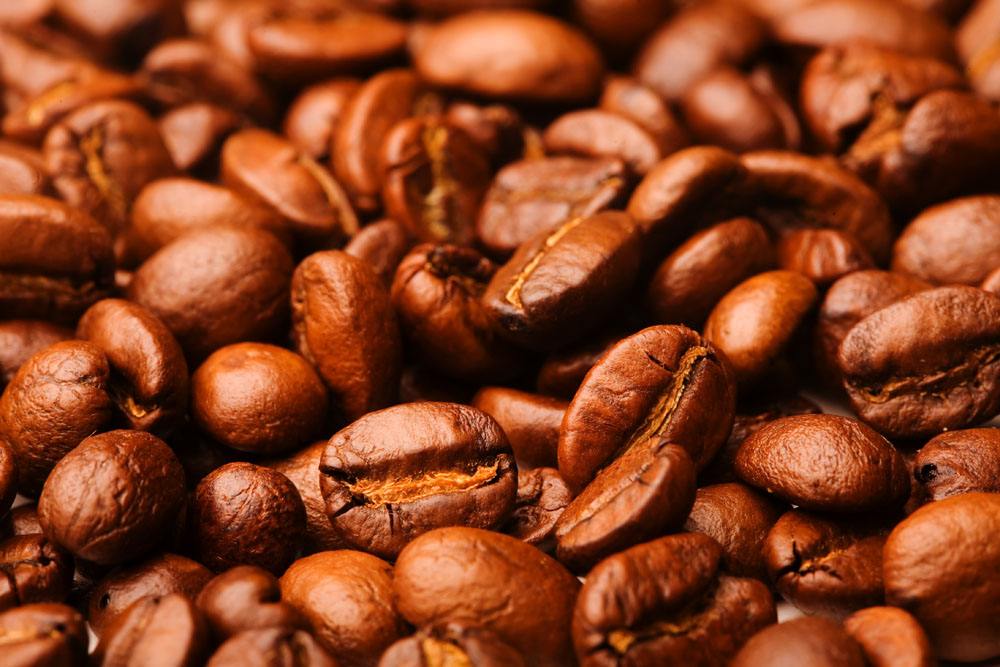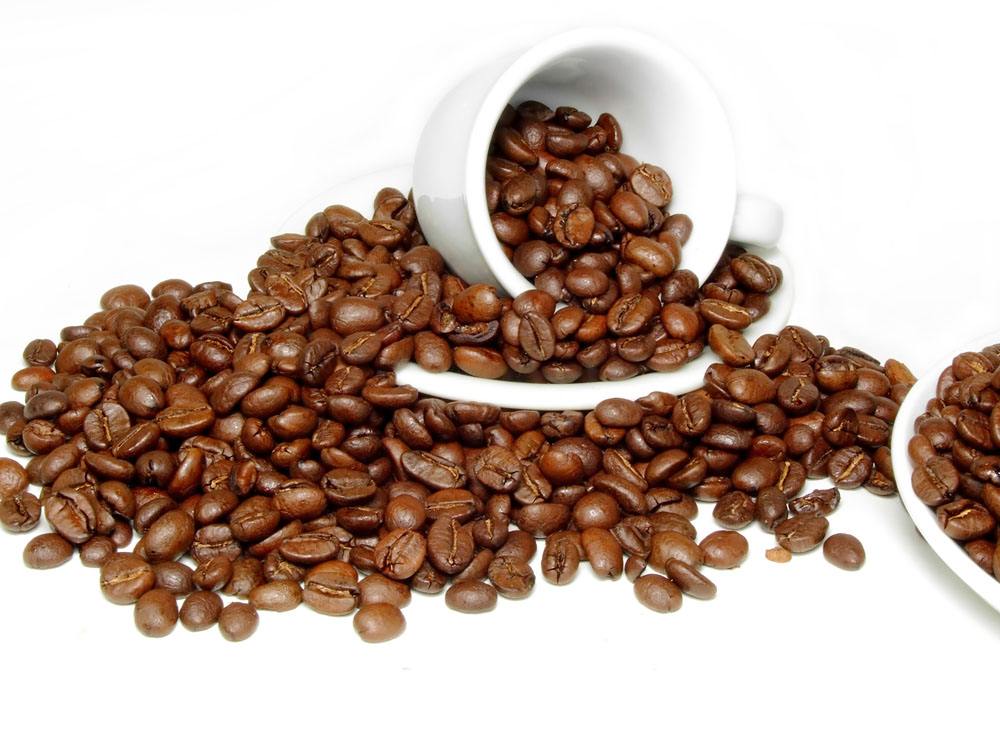Are blue mountain coffee beans bitter? the reason why Jamaican blue mountain coffee is expensive
Follow the caf é (Wechat official account vdailycom) and found that Beautiful Cafe opened a small shop of its own.
Jamaican Blue Mountain Coffee (Jamaica Blue Mountain) is recognized as the most perfect coffee in the world. There are several reasons for the high price:
1. The balance of taste is the best. This is also the most important reflection of the price of Blue Mountain Coffee. After all, coffee is for drinking. In my personal experience, under the premise of proper baking, the bitterness of Blue Mountain is very light, sour fruit, nutty, flower and charcoal can be tasted. Huigan (the sweetness left in the mouth after swallowing) is also obvious. There is almost no unpleasant odor.

It embodies what I often say: good coffee is not bitter. Isn't it amazing that we can taste such a rich taste without adding any seasoning to the coffee?
Over the past two years, civet coffee is more fashionable, and the price is several times that of Blue Mountain coffee. But in terms of taste, I think Blue Mountain is the absolute king.
two。 Natural conditions are the most perfect. Coffee trees are very demanding on natural conditions. There are requirements for temperature, rainfall, wind, sunshine intensity and so on. In particular, it is most sensitive to altitude, and only high-altitude areas can grow high-quality coffee. The Blue Mountains of Jamaica is one of the few perfect natural environments for growing coffee in the world. This ensures the uniqueness and rarity of Blue Mountain Coffee.
For example, blue mountain coffee is also grown in Yunnan, China, but it tastes very different from the authentic blue mountain coffee from Jamaica. Apart from the problem of planting level, natural conditions are an insurmountable gap.
3. Demand is always in short supply. Blue Mountain Coffee was not well known a few decades ago. With the rapid rise of Japanese economy, Japanese coffee culture is developing in the direction of boutique and high-end. A large amount of investment from Japan has prompted the coffee farms in Blue Mountain to strive for excellence, adopting the world's highest standards in seed selection, planting, refining and screening of defective beans.
For example, among the most common top coffee beans in the world, the proportion of defective beans is about 2%, as is the case in most coffee growing countries. I once sampled the top blue mountain coffee (Blue Mountain No.1) used in our store, and the percentage of defective beans was 0.1%.
There are several farms in the Blue Mountains that grow coffee exclusively for the British royal family and are not for sale. More than 90% of the rest of Blue Mountain coffee is sold to Japan, only 10% to Europe and the United States. So the real Blue Mountain Coffee is relatively rare outside Japan.
Note: the Japanese economy has been in a recession in the past year or two, and the demand for Blue Mountains has fallen sharply, while the Chinese economy looks very beautiful, so the supply of Blue Mountains in China has loosened slightly.
Blue Mountain Coffee is the most superior coffee in the world, and the weather, geological structure and topography of Jamaica provide an ideal place. The ridge that runs through Jamaica extends to the eastern part of the island, with the Blue Mountains rising to more than 2100 meters. Cool weather, foggy, frequent precipitation, use this rich soil Rain Water to reconcile. Here, a mixed planting method is used to grow coffee trees to accompany banana trees and avocado trees on terraces. Some small estates are also planted. But even the largest landowners in the region are small-scale growers by international standards, many of whom are small landowners whose families have been working for two centuries. The coffee industry in Jamaica faces a series of problems, such as the impact of hurricanes, increased labor costs and difficult mechanization of terraces. Many small estates and farms are difficult to rationalize.
As Japan has always invested in the Jamaican coffee industry, most of the Blue Mountain Coffee is now owned by the Japanese, and they have also obtained the right of priority to buy Blue Mountain Coffee. In 1992, Jamaica sold 688 tons of Blue Mountain coffee to Japan, 75 tons to the United States and 59 tons to Britain. Now, 90% of Blue Mountain coffee is bought by the Japanese. Now that the rest of the world can only get 10% of Blue Mountain, Blue Mountain coffee is always in short supply, regardless of the price.
Important Notice :
前街咖啡 FrontStreet Coffee has moved to new addredd:
FrontStreet Coffee Address: 315,Donghua East Road,GuangZhou
Tel:020 38364473
- Prev

What is the taste of Blue Mountain Coffee beans? brief introduction of Blue Mountain Coffee
Following caf é comments (Wechat official account vdailycom) found that Blue Mountain Coffee has all the characteristics of good coffee, not only full-bodied and mellow, but also because of the perfect combination of sweet, sour and bitter coffee, so it has no bitter taste at all, only moderate and perfect sour taste. It is generally drunk on a single product, but because the output is very small, the price
- Next

Types of Blue Mountain Coffee, distinguishing between true and false Blue Mountain Coffee
Following Cafe (Wechat official account vdailycom) found that Beautiful Cafe opened its own shop Blue Mountain Coffee. There are three grades of coffee in the Blue Mountain area of Jamaica: blue Mountain Coffee (Blue Mountain Coffee), Alpine Coffee (Jamaica High Mountain Supreme Coffee Beans) and Jamaican Coffee (Jamaica Prime Coffee Beans). Its
Related
- Detailed explanation of Jadeite planting Land in Panamanian Jadeite Manor introduction to the grading system of Jadeite competitive bidding, Red bid, Green bid and Rose Summer
- Story of Coffee planting in Brenka region of Costa Rica Stonehenge Manor anaerobic heavy honey treatment of flavor mouth
- What's on the barrel of Blue Mountain Coffee beans?
- Can American coffee also pull flowers? How to use hot American style to pull out a good-looking pattern?
- Can you make a cold extract with coffee beans? What is the right proportion for cold-extracted coffee formula?
- Indonesian PWN Gold Mandrine Coffee Origin Features Flavor How to Chong? Mandolin coffee is American.
- A brief introduction to the flavor characteristics of Brazilian yellow bourbon coffee beans
- What is the effect of different water quality on the flavor of cold-extracted coffee? What kind of water is best for brewing coffee?
- Why do you think of Rose Summer whenever you mention Panamanian coffee?
- Introduction to the characteristics of authentic blue mountain coffee bean producing areas? What is the CIB Coffee Authority in Jamaica?

